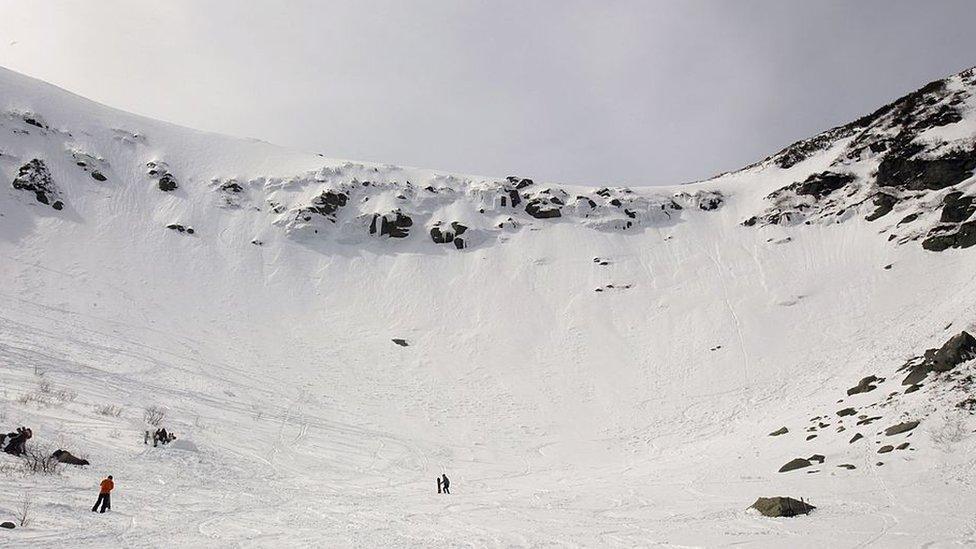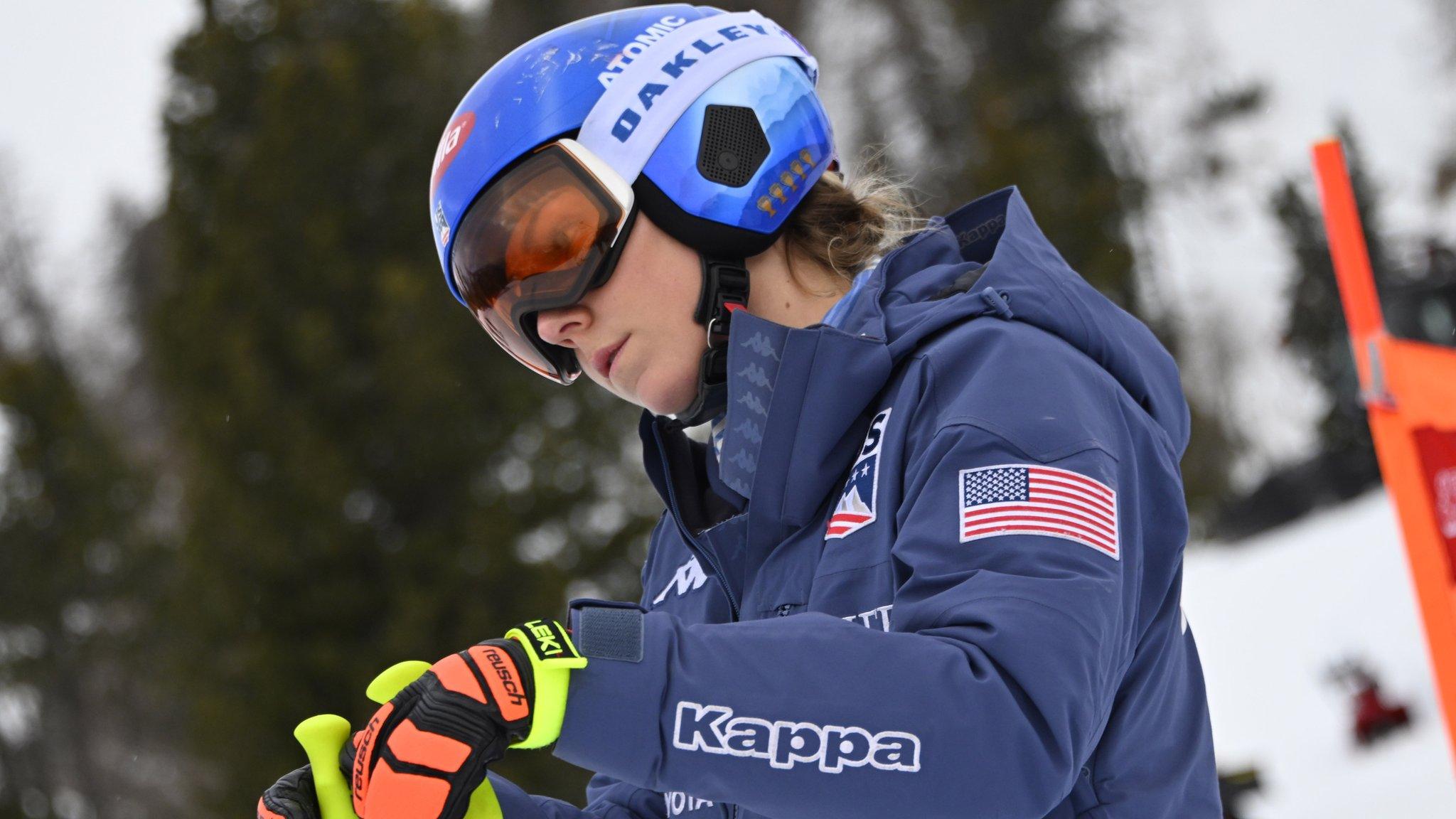Tuckerman Ravine: Skier dies after 600ft fall down Mount Washington
- Published

Tuckerman Ravine at Mount Washington has "highly exposed steep cliffs and slopes below it", the US Forest Service says
A 20-year-old has died after falling 600ft (183m) down a New Hampshire mountain ravine while skiing on Saturday, officials said.
Madison Saltsburg was evacuated after suffering "fatal traumatic injuries" during the fall on Mount Washington.
Two other people suffered non-life-threatening injuries.
At 6,288ft, it is the tallest peak in the north-eastern US and a popular yet difficult skiing destination.
The US Forest Service told US media that Mount Washington and surrounding areas have very steep ski mountaineering terrain and are "subject to ever-changing mountain hazards". "These commonly include avalanches, open crevasse holes, icy steep slopes, and falling rocks and ice."
The Tuckerman Ravine Trail - a south-eastern part of the mountain where Saltsburg fell - has "highly exposed steep cliffs and slopes below it", the forest service says on its website.
"The consequences of a fall or being involved in an avalanche can be dire," it warns.
The US Forest Service said that snow rangers and emergency personnel had been out helping people on the mountain on Saturday, including two others who were injured after falling down and hitting rocks and ice.
The agency said icy surfaces created dangerous conditions. Emergency personnel made the rescues during an evening of heavy snowfall and strong winds.
The BBC has contacted the US Forest Service for more details.
Just a day before, rangers had to rescue a 23-year-old skier from Kentucky who became hypothermic after he fell and hit his head while skiing the Ammonoosuc Ravine on Mount Washington.
"While descending into the ravine, [Joabe] Barbosa fell and hit his head and face, lost one of his sneakers, and eventually became hypothermic," New Hampshire Fish and Game officials said.
He was "given boots, food, warm drink, proper winter gear, and a headlamp", the agency said.
Related topics
- Published31 December 2023

- Attribution
- Published26 January 2024
